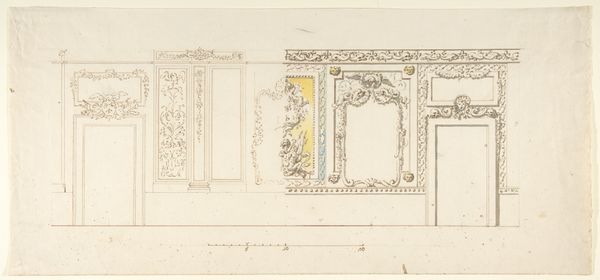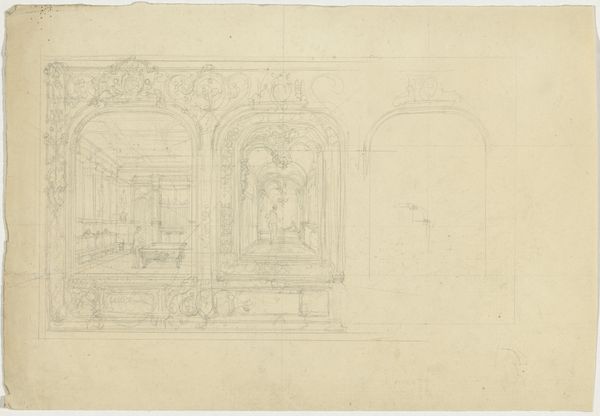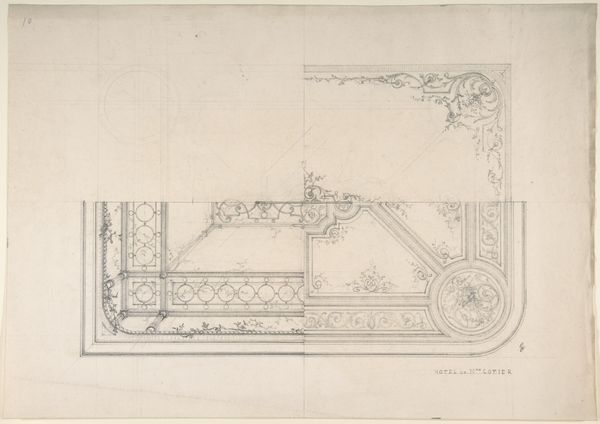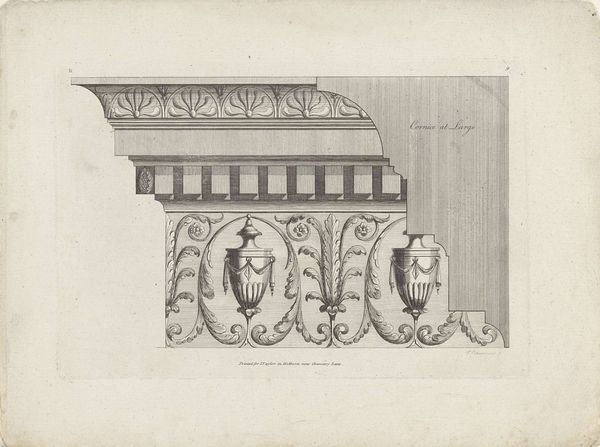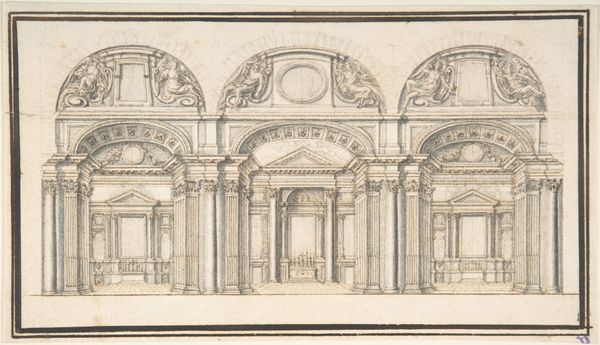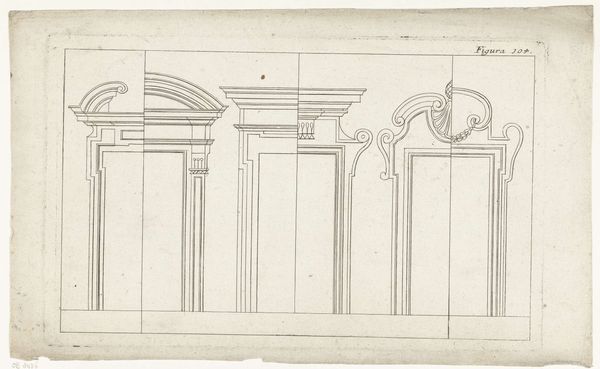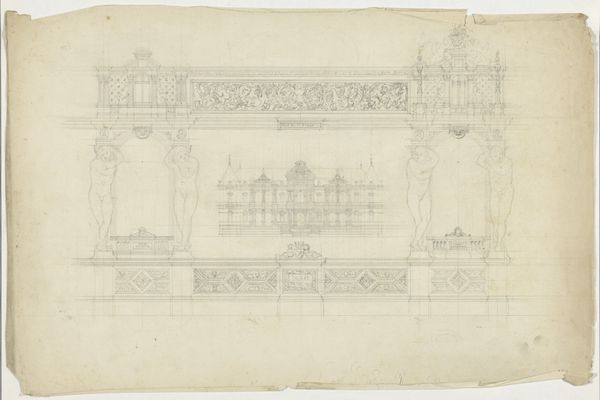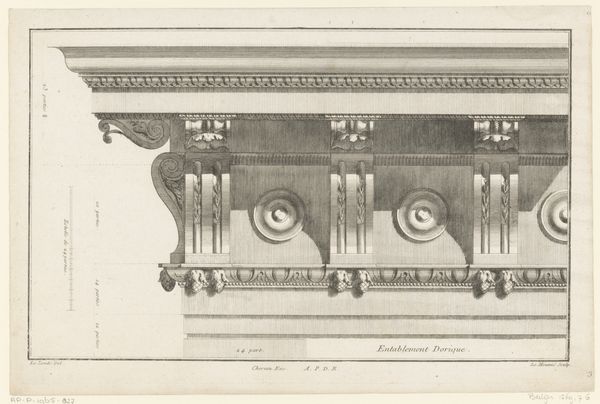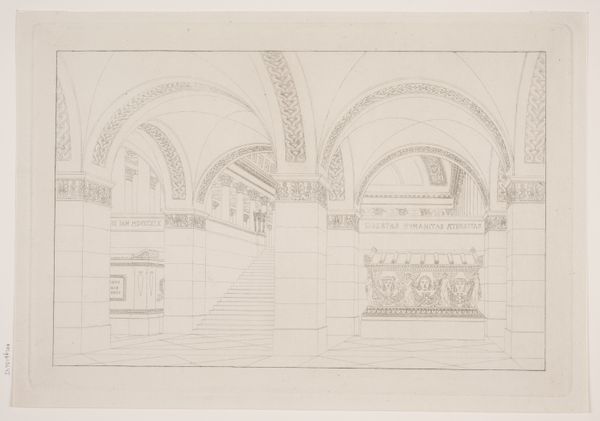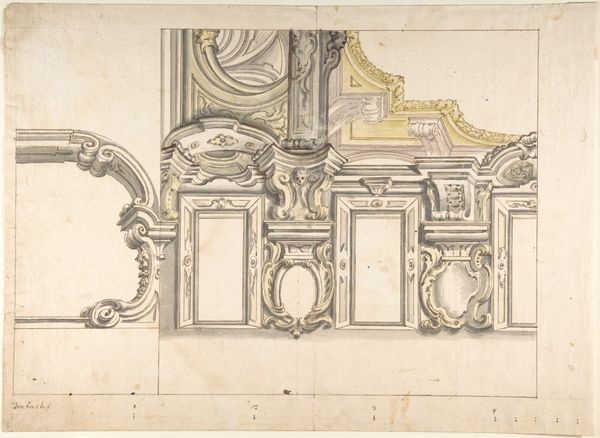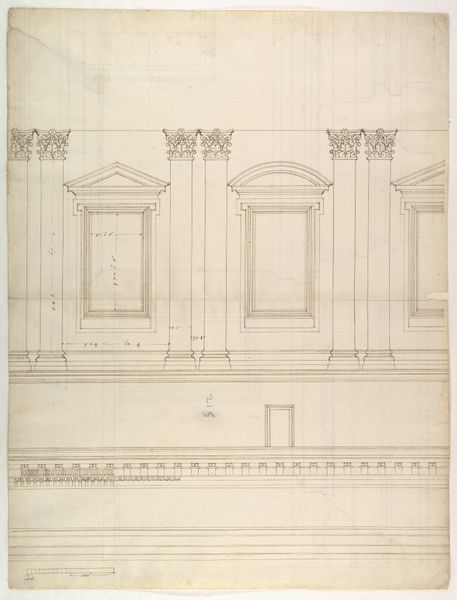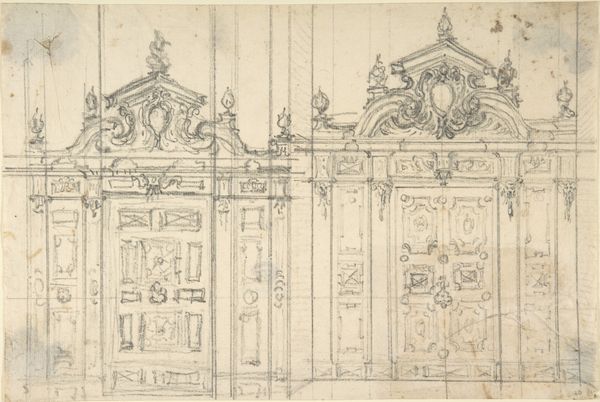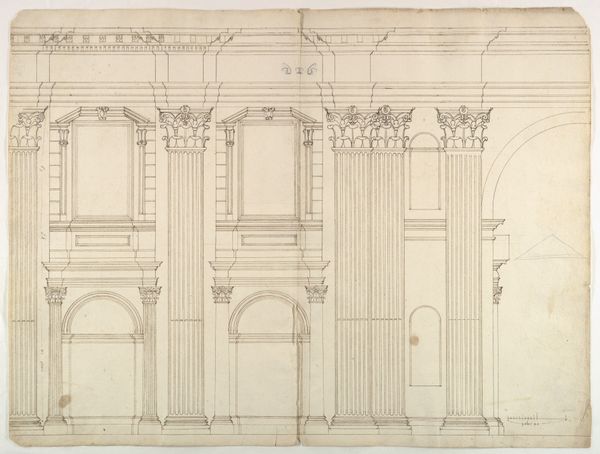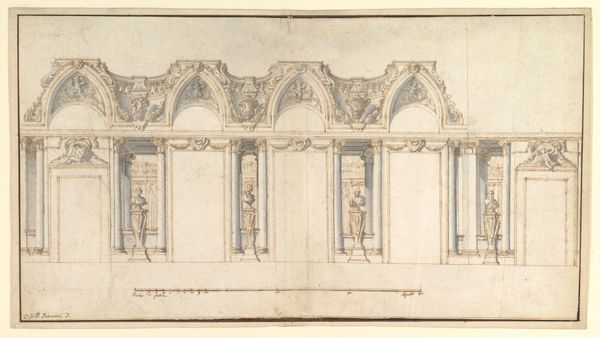
drawing, print, paper, pencil
#
drawing
# print
#
landscape
#
etching
#
paper
#
form
#
pencil
#
line
#
academic-art
#
realism
Copyright: Public Domain
Curator: Here we have "Free Standing Tomb and Canopy," a pencil, etching, and print work likely created between 1850 and 1900 by an unknown artist. The architectural draftsmanship immediately grabs the eye. Editor: Yes, it strikes me as formally austere, almost hauntingly so, with the precise lines delineating this ornate tomb. It feels…cold. Is this a design proposal, or perhaps a record of something already built? Curator: More likely the former, I suspect. Such detailed preparatory drawings were crucial for commissioning monumental works, and tombs especially functioned as public statements. How would you say the formal qualities might impact or inflect any social reading of it? Editor: The emphasis on the tomb's physical presence, the detailed carving replicated in these stark black lines, to me seems a forceful attempt to project power and status, literally enshrining the deceased. But I am troubled by the starkness; does it unintentionally speak to the emptiness death leaves behind for survivors? It raises questions about who gets such monumental tributes and why. Were they colonizers? Benefactors or exploiters? Who did this tribute disenfranchise? Curator: That’s astute. Funerary art served explicitly to reinforce social hierarchies, dictating who merited remembrance. The scale and lavish details – the lion heads, the sculpted friezes – all announce considerable wealth and influence. Such statements served a key purpose. Consider the location too. Who can view it, how accessible the place is for general community access. Editor: Absolutely, access shapes meaning, making such visual reminders exclusionary by nature. We should perhaps be asking ourselves who is this tomb really FOR: The one memorialized, or the culture, reinforcing the values they represent and preserve? Curator: A fitting question to contemplate as we move on to the next piece. Thanks for sharing. Editor: The pleasure was mine.
Comments
No comments
Be the first to comment and join the conversation on the ultimate creative platform.
